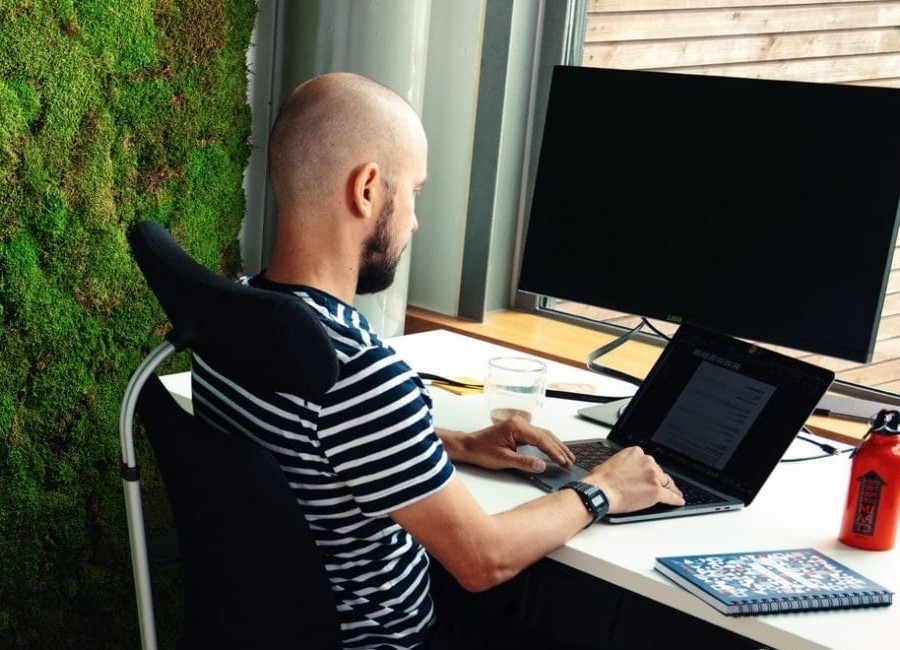This is going to be a little bit different blog post from me. The two previous Devops 101 posts I wrote were aiming for a lighter mood, to make them easy to read and to differentiate from otherwise so seriously written articles, and to contain some of my personality. Due to what has been happening in the gaming world (I do consider myself to be a gamer, though not a hardcore one) and considering how the events are related to the topic, this requires a much more serious tone.
A short recap
If you are not a gamer or otherwise follow what has been going on in the past few months, and in fact the past few years, here is a short summary. The most topical matter currently is the case of Activision-Blizzard lawsuits. The Blizzard-side of Activision-Blizzard has been accused of being an unhealthy work environment especially towards women, who have been harassed and discriminated in several ways. There would be a lot to unpack, so for details please read PC Gamer’s article for a complete view of what has been going on.
And this is not the only case. Another well-known case in the game industry is the Riot Games lawsuit, also about sexism and discrimination.
Then there are the crunch periods, which are used in order to keep the development on schedule and to release the product on time, instead of delays. This is something that plagues not only the gaming industry but the software development industry altogether, though it has been most visible through game development (e.g. CD Projekt boss apologizes for saying Cyberpunk 2077 crunch is ’not that bad’).
The Issues
How is the related to the topic then? The above are few a very visible examples of what devops does not stand for. No matter who you are and in what position, discrimination, harassment, sexism and requiring people to overwork themselves in order to meet deadlines are devops cultural anti-patterns.
Things mentioned, other than crunch periods, undo most of what companies possibly work towards to make the environment psychologically safe. If the principles only work for specific set of people working in the organization, then the culture does not truly emphasize psychological safety, or any other values they might promote. This is a matter of all or nothing, of which the latter is a scary thought.
Crunch on the other hand is a matter of employee well-being, both physical and mental. In the software industry, most of the load is mental rather than physical, but both do count. If we continuously work long hours, it does strain us physically and mentally. Static work position and not enough time for exercise is bad for the body, while little time to do other things (hobbies etc.) does not recover our minds enough. Little by little the stress accumulates and at some point the body and/or mind gives up saying “enough of this”, resulting in burnout.
Psychological safety
In a psychologically safe culture, people are able to ask questions, discuss matters openly and be themselves. Through the first two, learning and sharing knowledge is possible. If people are ready to discuss and question matters openly (politely of course), then it is easier to come up with better solutions, find issues and spread knowledge. Because no-one can know everything, everyone can learn from everyone, juniors from seniors, seniors from juniors, and so on.
To be oneself means that we do not need to pretend to be something else than what we are, as long as it is not considered to be truly harmful (which can be unfortunately turned into a political weapon). Things like gender, sexuality, nationality and religion do not matter, but what does is that we can put our prejudice aside and treat everyone respectfully.
Figuring out whether the environment promotes psychological safety is not always easy. It may not be mentioned explicitly, but it still may be (especially in smaller organizations) that the same values apply. The difficulty comes also from our differences; the bigger the organization, the more there are different kinds of people. Some things everyone can ask them themselves to figure out whether the work environment is psychologically safe for them, are:
- If I do not agree with person X, do I feel I can bring it up to him and share my view on the matter? (Same if X is one’s senior, boss, etc.)
- If I think there is some problem in the organization, do I feel I can start a public conversation on the matter without being belittled, punished or made fun of somehow?
- Can I openly be myself, do I have to actively hide some important part of me?
And to “smoke-test” yourself to see if you can provide psychological safety to others, ask yourself:
- Do I feel that I can take advice from others, whether they are in seniors, juniors or in some other position?
- Do I feel like I can take critique from others?
- Can I treat others respectfully as themselves, if they are of different gender, sexuality, nationality or religion?
Recovery
In the discussion about minimum wage in the US, I have seen lots of talk on “one must be ready to work hard to survive” and “survival of the fittest” kind of argumentation. This kind of attitude feeds the ideas of “life is survival” and “to survive is to work hard”. Though it goes outside of devops in some sense, at the same time these kinds of ideals are a danger to workers of any industry.
Here we bump into the age-old philosophical question: What is the meaning of life? Or to rephrase it: What brings meaning to one’s life?. Everyone probably has a different answer to the question, but mine is to live a happy life, to hopefully make a difference for the better, to help those that come after be better than I am. I do not believe that it is enough that we live to work from one day to another. That kind of life just sounds depressing and dystopian.
Why am I talking about the meaning of life? The answer to that is recovery and mental well-being. If we feel that something outside of work brings us joy and meaning to go from one day to another, and if that brings us happiness, it can also be a way to reload our mental batteries, i.e. to recover from work’s mental strain.
Though crunching works to some extent, additional work hours have diminishing returns and the more tired people are, the more mistakes they make. When allowed to rest enough in order to recover from the work, the cumulative stress reducing the risk of burnout. And this does not mean that the weekends should be used just for resting and recovery, anxiously waiting for the next week and what it brings, recovery should happen on daily basis, and everyone should have time for themselves as well. This is also why employers should care about their employees. When workers are tired they are more prone to make mistakes. Accumulating stress leads to cynicism, at which point the employees care less for each other and for what they are doing. Even further down the road is the risk of burnout and sick leaves. On the other hand, supporting recovery and life outside the work environment helps to reduce stress and improve productivity.
More to read on crunching, recovery, and happiness:
- Why Crunch Mode Doesn’t Work: Six Lessons [2005] (notice, this was written 16 years ago!)
- 5 Ways to Increase Work Recovery and Decrease Workplace Stress
- How to recover from burnout and chronic work stress – according to a psychologist
- Happiness and Productivity
- Why Happy Employees Are 12% More Productive
A psychologically safe environment helps with retaining employee satisfaction and happiness. This helps to deal with an already busy and stressful job and less time is required for recovery. It also helps to build the community and interpersonal ties within the organization, since people feel safe to share knowledge, they can trust each other and feel appreciated. With all these, motivation increases and people become more productive. It also helps retain knowledge when organizational changes occur, and reduces the possible negative impact of structural changes.
In terms of recovery, when people are allowed to have enough time to rest, the accumulating stress is greatly reduced and so is the risk of burnouts. What also is needed is to take care of employees actively and to react to possible issues in their work. If work is frustrating all the time, it does not matter how much there is time to rest, when part of the off-time goes to dreading the next day and what it might bring. Listening to people and actively trying to solve the problems causing frustration is a key element preventing it from becoming cynicism.
The opposite, i.e. a psychologically unsafe environment, lead to silent knowledge, when people are afraid of sharing knowledge, perhaps as a way to retain their jobs, and to a situation where people are afraid to discuss and argue in a civilized manner to come up with better solutions. Knowledge is not shared, and may even be lost, reducing productivity.
So to all employers: take good care of your employees, keep them happy, welcome them as they are providing a safe environment to work in, because that way you will get the best out of them, and they are not likely to leave soon.
Read more: here are the writer’s previous Devops 101 posts


